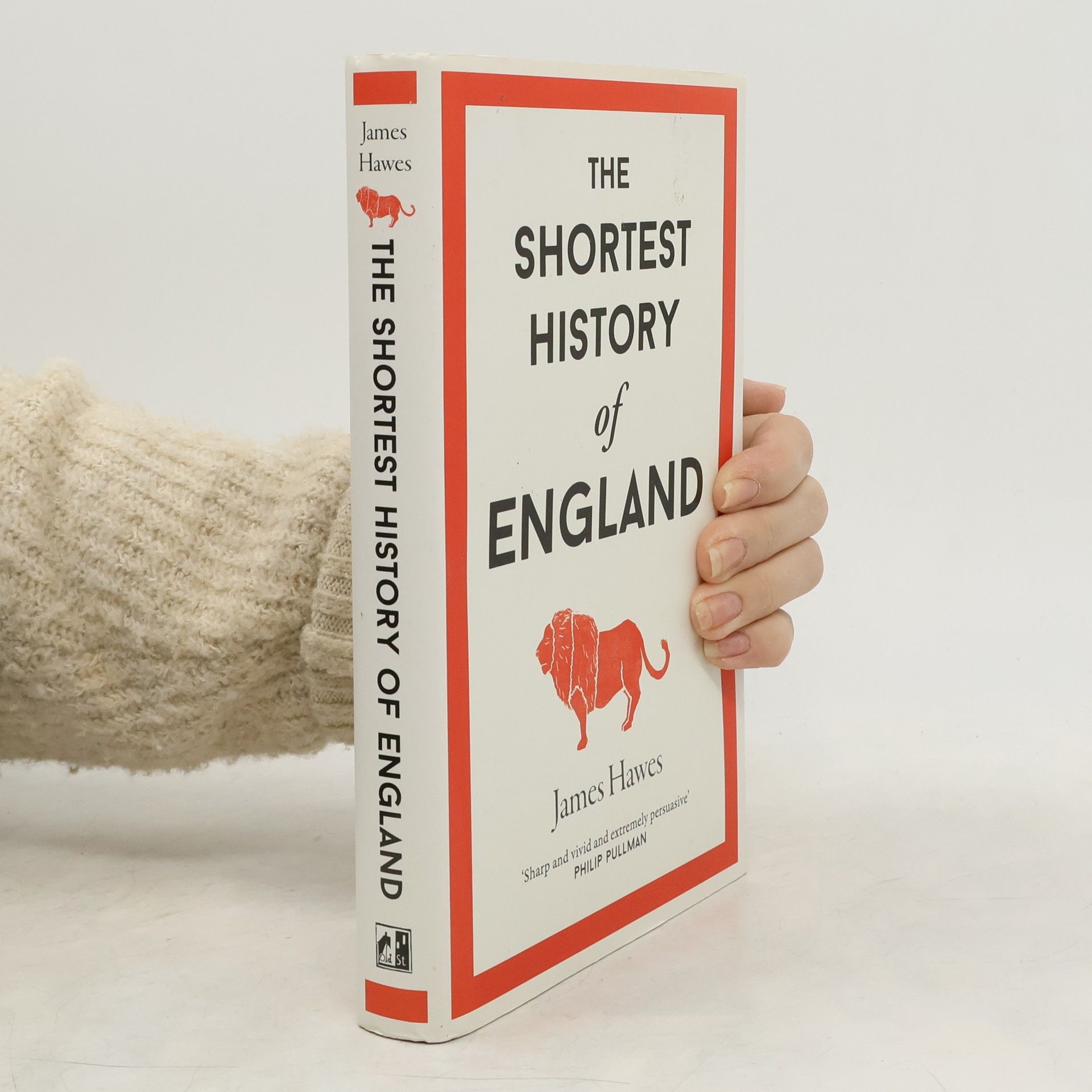Explore the history of the British isles through 80 extraordinary creations -- from Beowulf and the Bayeux Tapestry to Banksy, Stormzy, and beyond...A companion book to the landmark BBC series,BRILLIANT ISLES tells the story of these islands through art, music, buildings and literature -- the creations of visionaries, mavericks and rule-breakers who responded to their times and shaped the future. Whether read cover-to-cover or dipped into, this is a vibrant, surprising and witty guide to a unique culture, by one of our sharpest writers.
James Hawes Libri







Kafka's features, and that dreaded word, Kafkaesque, are known to millions who have never read serious literature. Generations of academics and critics have maintained the image of Franz Kafka as a tortured seer whose works defy interpretation. In Excavating Kafka James Hawes reveals the truth that lies beneath the image of a middle-European Nostradamus with a typographically irresistible name. The real Franz Kafka was no angst-ridden paranoid but a well-groomed young man-about-town who frequented brothels, had regular sex with a penniless-but-pretty girl and subscribed to upmarket pornography (published by the very man who published Kafka's first stories). Excavating Kafka debunks a number of key facets of the Kafka-Myth, including the idea that Kafka was the archetypal genius neglected in his lifetime; that he was stuck in a dead-end job and struggling to find time to write; that he was tormented by fear of sex; that he had a uniquely terrible, domineering father who had no understanding of his son's needs; that his literature is mysterious and opaque; that he constructs fantasy-worlds in which innocent everymen live in fear of mysterious and totalitarian powers-that-be. Written with the panache of a supremely gifted comic writer, Excavating Kafka is an engaging and involving reassessment of a major figure of literary modernism that will be welcomed and enjoyed by students of Kafka and by general readers alike.
"A fast-paced tour of 2,000 years of English history, tracing its secret north-south divide and notorious class system"--
White powder, green light
- 288pagine
- 11 ore di lettura
James Hawes' fourth novel takes his not-quite-innocent heroine, Jane Feverfew, on a comic journey from the eccentrities of Wales into the unholy Soho movie world.
Broschiertes Buch The perception of modern Germany as a final outpost of liberal democratic ideals is placed in a historical context, and addressed as a point on a trajectory beginning with Julius Caesar's invasion in 58 BC, in this concise, politically-charged history of Germany, which situates the extremes of the German political experience throughout ancient and recent history in relation to the broader climate. *Also appeared in April Buyer's Notes*
Discovers an England very different to the standard vision. England´s fortress, stubbornly independent, the begetter of parliaments and globe-spanning empires, is riven by an ancient fault-line that predates even the Romans; its fate has ever been bound up with that of its neighbours. For the past 1,000 years it has harboured a class system like nowhere else on Earth
Take four ne'er-do-wells: a 28-year-old ex-public schoolboy who can't bear the idea of setting down; Suzy the Black Widow, who has a deliciously flat stomach and drives like she's breathing through the carbs; Brady the Reservoir Dogs fetishist; and Chico the fat Portuguese waiter. Add some plastic guns, the IRA and a white Merc with fins and you have a plan. What plan? The plan to walk into Michael Winner's private bank and walk out with half a million quid. Fast, clever, stylish, funny and utterly compulsive, this is a first novel with everything.
Franz Kafka’s iconic image evokes bleak visions of bureaucracy, nightmarish transformations, and uncanny predictions of the Holocaust. However, the reality of his life diverges sharply from the mysterious, sickly figure often portrayed. Kafka was, in fact, a well-connected millionaire’s son who indulged in a vibrant social life, including relationships with women and visits to brothels. He held a prestigious state job, earning the equivalent of $90,000 today for a six-hour workday, and remained a loyal member of Prague’s German-speaking elite throughout his life, supported by a strong literary network. Many myths surround Kafka: that he was a neglected genius, lonely, trapped in a dead-end job, tormented by sexual fear, overly honest with women, and burdened by a domineering father. Additionally, his writing is often described as mysterious and opaque, leading readers into bizarre worlds. James Hawes aims to dismantle the critical barriers erected by scholars, biographers, and guides that have obscured Kafka's true persona and the significance of his work. He seeks to reveal the real man behind the myths and the profound impact of his literary contributions, challenging long-held perceptions without reservation.
Harry is 40 today. As his life unravels in drugs, death and unrequited love, his friend, Ben, realises that when you've been adults for longer than between Hitler and the Beatles, it really is time to grow up.
YOU'RE STUCK ON THE M25, STRESSED OUT ABOUT YOUR TAX RETURNS, YOUR MARRIAGE, YOUR SPERM-COUNT AND CHARMAIINE, WHEN YOUR MOBILE RINGS AND YOU FIND OUT YOU ARE STUFFED, BANKRUPT, FINISHED. THE BIG REF HAS JUST SHOWN YOU THE RED CARD. Unless, that is, the mysterious Mr Kant delivers. But what does he want in return? And what does his beautiful secretary want for dragging you into her bedroom? Come to think of it, what does your Irish accountant want out of it - and your neighbour Gerry, the American lawyer, with his guns and his secret life?



